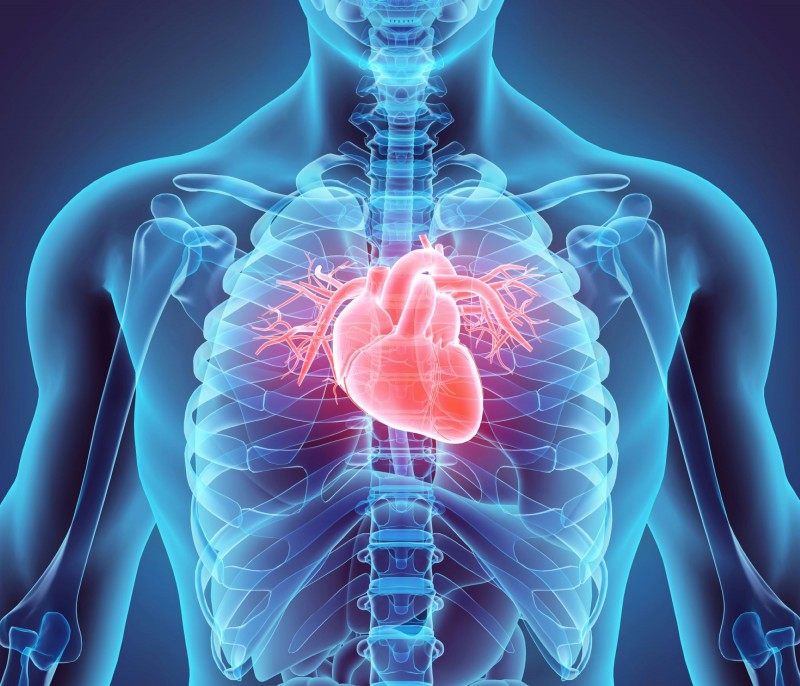
Heart disease, once a concern primarily for those aged 60 and older, is now knocking on the door at the age of 40. This alarming shift in demographics has sparked concern among health professionals and researchers alike. To combat this trend and safeguard your heart health, it is crucial to stay informed and proactive. Let's delve deeper into each of the following strategies to prevent early-onset heart disease:
In the not-so-distant past, heart disease was predominantly associated with the elderly, striking individuals in their 60s and beyond. However, recent years have witnessed a significant shift in this demographic trend. Increasingly, individuals in their 40s are being diagnosed with heart disease, underscoring the urgency of preventative measures.
The reasons behind this shift are multifaceted. While genetics play a role, lifestyle factors such as diet, physical activity, and stress management also contribute significantly to the rising incidence of heart disease among younger adults.
Understanding the various factors contributing to early-onset heart disease is essential. It's not solely a matter of genetics; lifestyle choices are equally influential. These factors include:
Maintaining a heart-healthy diet is paramount. Opt for a diet rich in fruits, vegetables, whole grains, lean proteins, and healthy fats. Reduce your intake of saturated and trans fats, as well as sodium and added sugars. Prioritize foods that are high in fiber, antioxidants, and omega-3 fatty acids.
Physical activity is a powerful shield against heart disease. Aim for at least 150 minutes of moderate-intensity aerobic exercise or 75 minutes of vigorous-intensity exercise per week. Regular workouts strengthen the heart, lower blood pressure, and improve cholesterol levels.
Effective stress management techniques can significantly reduce heart disease risk. Engage in activities that promote relaxation, such as yoga, meditation, deep breathing exercises, and spending time in nature. Prioritize self-care to mitigate the harmful effects of chronic stress.
Often underestimated, quality sleep is crucial for heart health. Aim for 7-9 hours of uninterrupted sleep per night. Poor sleep patterns have been linked to an increased risk of heart disease, obesity, and hypertension.
Quitting smoking is one of the most impactful steps you can take for your heart's well-being. Smoking damages the arteries, raises blood pressure, and promotes the formation of artery-clogging plaque.
While moderate alcohol consumption may have some heart benefits, excessive drinking can be detrimental. Limit alcohol intake to one drink per day for women and up to two drinks per day for men.
Excess sugar consumption can lead to obesity, diabetes, and heart disease. Cut down on sugary beverages, snacks, and desserts. Opt for natural sweeteners or reduce sugar in recipes when possible.
Regular medical checkups are crucial for detecting and managing risk factors associated with heart disease. These checkups can include blood pressure monitoring, cholesterol level assessments, and discussions about lifestyle choices.
High blood pressure is a significant risk factor for heart disease. Regular monitoring and, if necessary, treatment are essential for maintaining healthy blood pressure levels.
Monitoring cholesterol levels, especially low-density lipoprotein (LDL) cholesterol, is vital. Elevated LDL cholesterol levels can contribute to the buildup of plaque in the arteries, increasing the risk of heart disease.
The mind-body connection is a powerful tool in the prevention of heart disease. Meditation and yoga promote relaxation, reduce stress, and improve overall well-being.
Strong social bonds and a robust support network can contribute to heart health. Meaningful relationships and positive social interactions have been linked to a lower risk of heart disease.
Obesity is a major risk factor for heart disease. Maintaining a healthy weight through diet and exercise is essential for heart health.
Practicing portion control helps manage calorie intake, aiding in weight management. Be mindful of portion sizes to prevent overeating.
Omega-3 fatty acids, found in fatty fish, flaxseeds, and walnuts, have numerous heart-protective benefits. They reduce inflammation, lower triglyceride levels, and improve blood vessel function.
Dietary fiber, abundant in fruits, vegetables, and whole grains, helps lower cholesterol levels and maintain healthy blood pressure.
Antioxidants, found in colorful fruits and vegetables, combat oxidative stress and inflammation, reducing the risk of heart disease. In conclusion, early-onset heart disease is a concerning reality, but it is not inevitable. By embracing these strategies and making informed choices, you can significantly reduce the risk of heart disease and ensure a healthier, longer life for your heart.
Boosting Male Fertility: A Comprehensive Guide to Fertility-Enhancing Foods